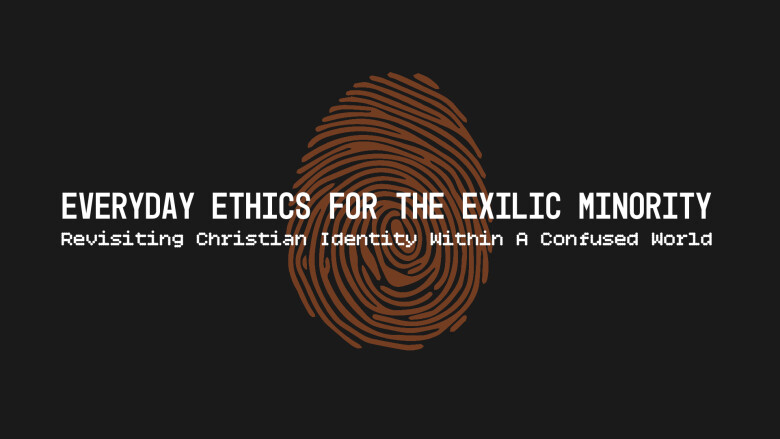Everyday Ethics For The Exilic Minority: Revisiting Christian Identity Within A Confused World
Why We Don’t Fast, Much
Matthew 6:16-18
I must discipline myself at all times and must fast only when I feel led by the Spirit of God to do so, when I am intent on some mighty spiritual purpose, not according to rule, but because I feel there is some peculiar need of an entire concentration of the whole of my being upon God and my worship of Him. (M.L. Jones, Sermon on the Mount, 1959, 41)
Background:
OT--One national fast (“deny yourself” NIV) commanded per year (Lev. 16:29-31)—connected to repentance and sorrow over sin.
Pharisees boosted it to twice a week—to put piety on display and asceticize the flesh.
Jesus, Lord of all, neither needs nor wants our outward show of personal piety.
From fasting to virtue-signalling
From once a year (plus personal/national emergencies) to twice a week to intentionally “disfiguring” physical appearance to publicly critiquing Jesus (Matt. 9:14-17)
“I have not seen a right fast.” (Luther, W2, 12:12 78-79, 1537)
From fasting to feasting (Matt. 9:14-17)
Nobody wants a sullen, withdrawn, recluse at a wedding!
Jesus freed us from the watchful gaze of public opinion to an authentic heart watched by the Father (J. Chrysostom
385 AD)
From fasting to the new wine-skins of joy—feasting with the Bridegroom at the Lord’s Table
- Jesus approved of fasting, but never commanded it.
- Paul fasted, but never mentions it in his letters to the churches.
Freed to fast
When misused, fasting is a tremendous burden of unnecessary slavery.
Fasting...
- Is an act of discipline as a means to an end, recognizing the important connection between the physical and the spiritual and should not be disconnected from either—to do without to prioritize a spiritual urgency.
- Is an act of penitence (sorrow) or urgency as directed by the Holy Spirit to either the disciple or the church.
- Is a discipline training the disciple in godliness—learning to say no, to deny oneself of necessary things, teaches us to be able to say no to sin and embrace godliness, especially those sins enslaving us.
- Disciplines us to switch the measurement of things—man is not the measure of the abundance of things he has.
- Is to draw our focus/attention to God—NEVER as a transfer of Divine sovereignty—God remains in charge no matter how long one fasts. Spiritual urgency is always and only rewarded God’s way.
In the early church, the Lord’s Supper became the hallmark of public piety and worship— it is at once, the most joyful and dangerous activity in which the NT saint engages!
EXAMINE YOURSELF.
Series Information

